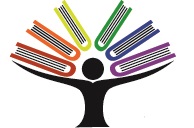
Izvedba ZDS
Kaj brati
Kaj beremo na Znanstvenih Dialoških Srečanjih (ZDS)?
"[...] v dialoškem učenju se ljudje kolektivno odločijo, s pomočjo
razprave, o ciljih in vsebinah razprave." (Flecha, 2000, str. 17)
Ljudje, ki sodelujejo v ZDS, so tisti, ki izberejo dela, ki jih berejo in se o njih pogovarjajo. To temelji na izbiri predlogov z uporabo naslednjih meril:
- Izbrati je treba klasična besedila z znanstvenega področja, pri izbiri novejših besedil pa je treba izbirati med besedili, objavljenimi v znanstvenih revijah, ki jih potrdi mednarodna znanstvena skupnost.
- Avtorji morajo biti osebe, katerih prispevki so imeli globalni učinek.
- Treba je upoštevati klasifikacijo vpliva znanstvenih revij.
- Dela morajo biti izvirna besedila, ki pripadajo izvirnemu viru ali avtorju.
- Dela morajo imeti nekaj meril odličnosti.
- Dela morajo imeti družbeni vpliv.
- V primeru prevedenih besedil je treba zagotoviti kakovost prevoda.
- Sposobnosti udeležencev za delo z besedilom z določeno stopnjo težavnosti ne smemo podcenjevati, saj v teh primerih, obstaja veliko več priložnosti za skupinsko razumevanje in razmišljanje.

Predlagana besedila/članki
- “A new therapeutic target for acute myeloid leukemia” in Journal Leukemia
- “Changing the memory to prevent gender violence” in Human Neuroscience Lab
- “Controversial Gene-Editing Approach Gains Ground” in Scientific American
- “Darwin Now” (Eight passages out of 14) from http://www.wwf.gr/images/pdfs/pe/Darwin_now_exhibition_guide_gr.pdf
- “Forever young” in Science
- “Healthy diet tied to lower risk of cognitive decline” in Neurology
- “Healthy heart may also mean healthy brain” in Journal of the American Heart Association
- “Killing us softly – Mutagenicity and toxicity of pesticides” (Scientific article from a scientific booklet)
- “Letter to Mrs. Cristina de Lorena, Grand Duchess of Tuscany” by Galileo Galilei
- “Neuroscience: The Risks of Reading the Brain” in Nature
- “Southern Ocean warming delayed by circumpolar upwelling and equatorward transport” in Nature
- “The city is the highest form of society” taken from Aristotle’s “Politics”
- “The weather is changing – our food must change too”
- etc.
Predlagane knjige
- Darwin, C. - On the Origin of Species
- Galileo, G. - Dialogue Concerning the Two Chief Ptolemaic and Copernican systems in the world
- Copernicus, N. - On the Revolutions of the Heavenly Spheres
- Kepler, J. - The secret of the universe
- Levi-Montalcini, Rita (2011). Praise of Imperfection. Barcelona: Tusquets. (Original published in 1987: Praising dell'imperfezione).
- Kandel, R. (2007). In Search of Memory: The emergence of a New Science of Mind. NY: Norton & Company.
- Hawkings, S. - Great design
- Hawkings, S. - The theory of everything
- Ramon y Cajal, S. - Rules and advices on scientific investigation
- Ramon y Cajal, S. - Recollections of my life
- Descartes, R. - Discourse on the Method
- Lucretius, T. - De Rerum Natura
- Newton, I. - Mathematical Principles of Natural Philosophy
- etc.
Kurzlink zu dieser Seite:
die-bonn.de/li/1384
